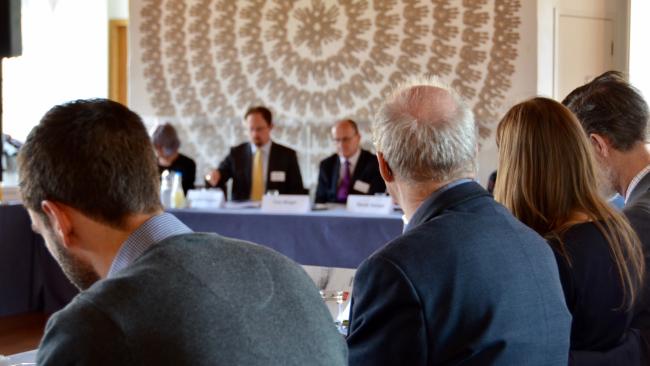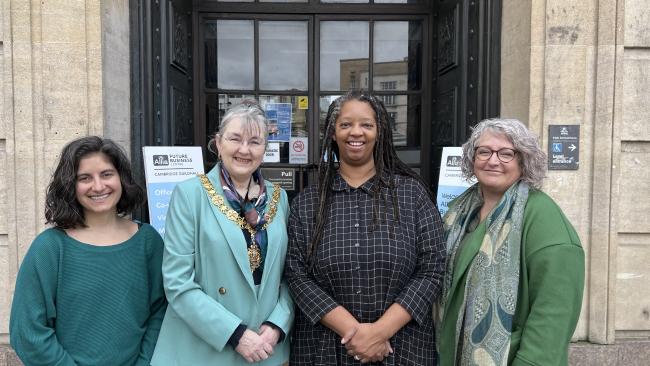
How we can age better: experts at Rustat Conference discuss this crucial issue
On a day when proposed changes to the state pension age were being debated in the media, international experts met in Cambridge to discuss one of the greatest social, financial and political challenges of our time: ageing.
In a wide-ranging discussion that touched upon topics from jam jar lid design to co-morbidity and the oldest old, specialists from academia, policy making, healthcare, finance, housing and industry came together for a roundtable discussion at this Rustat Conference, hosted by Jesus College’s new Intellectual Forum.
Intergenerational inequalities of health and of finance were prominent concerns, with debates about how older people make the most of their lives, the need for early investment into education, and transformation in health and social care. Recent research cited suggests that ageing is more malleable than originally believed – we can control how we age. Can the same be said for the numerous inequalities driven by our present responses to ageing?
Keynote speaker Tom Wright, CEO of Age UK underscored that in terms of current initiatives responding to ageing, “the job is certainly not yet done”. Wright emphasised the urgency of the problems that need addressing, such as how to support the 1.2 million older people in the UK with unmet care needs.
Professor Sarah Harper, Director of the Oxford Institute of Population Ageing, stressed the importance of geographical differences across an ageing population. She emphasised that no one uniform solution exists but a plurality of approaches can, and has, led to valuable insights.
With 80% of wealth held by people over 50 in the UK, the Conference asked whether this distribution is an issue, an opportunity, or both? Should we be considering fiscal redistribution, perhaps shifting taxation from income towards wealth, or encouraging an increased birthrate to counter our ageing population? How could redistribution be revised across later life, driving independence rather than extending life at all costs?
Dr Julian Huppert, Director of Jesus College’s Intellectual Forum, said: “Too often ageing is seen as a negative thing for society. One thing that was shared by all those who came was that there are vast opportunities - older people can contribute a huge amount to society. The challenge for us is how to support them to do so. The significant inequalities that exist within generations as well as between them are causing harm to people and society.”
A report on the Rustat Conference on Ageing will follow soon.
Our previous report on the Future of Work is now available. Please also see further information on our previous events and our membership.





